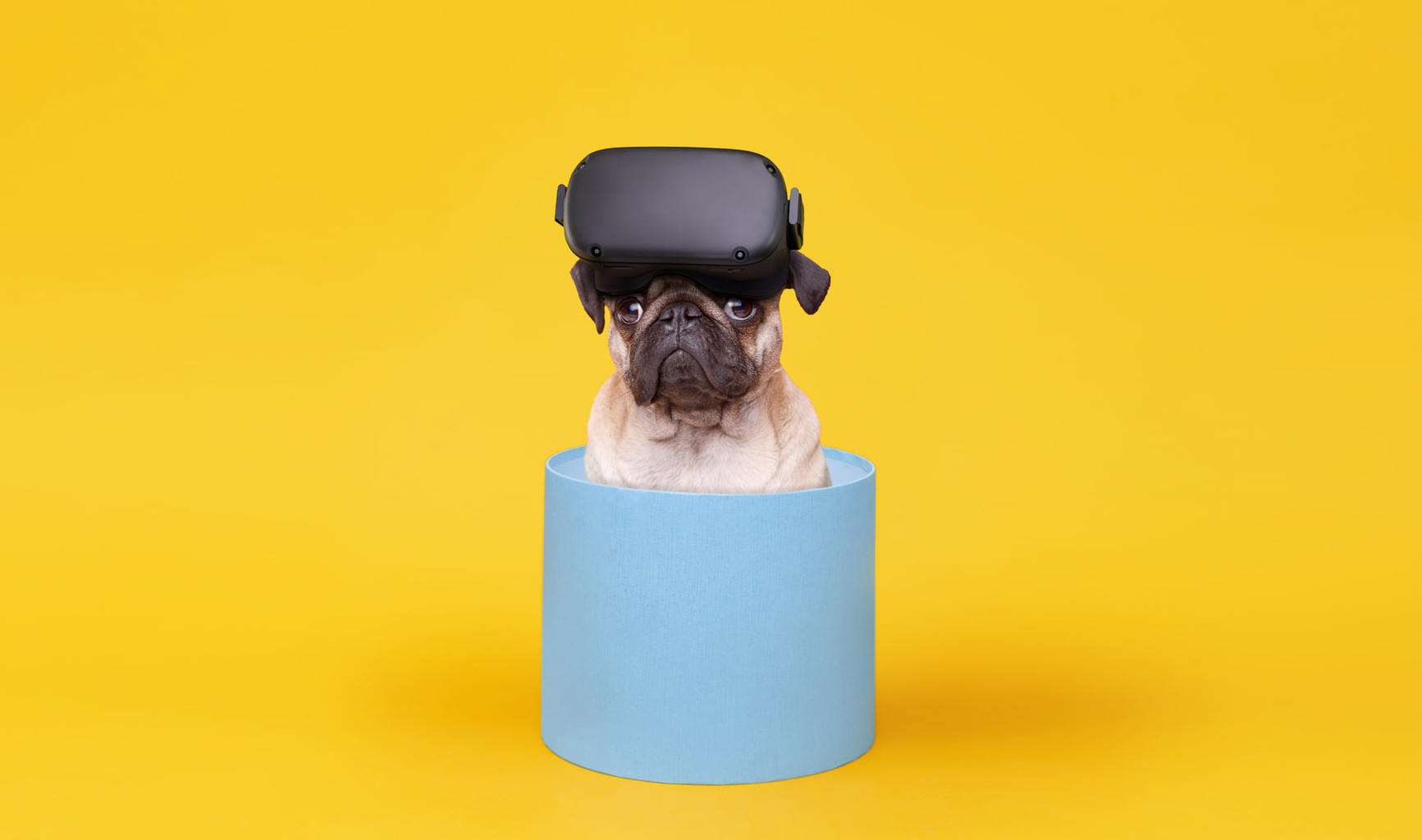The robots are taking over! Okay, not yet, but we are much closer to creating a mirror world like the ones in “Ready Player One” and “Tron.”
You heard right: You can have the time of your life at a concert across the country, while sitting in your living room with your favorite snacks. This world is still evolving, but Stephanie Izquieta, Events Programming Manager for CoinDesk, says we aren’t that far from creating this metaverse.
At Managing Editor Live, Stephanie discussed how hybrid events have grown over the last year, the shift that technology is making into the metaverse, and the importance of having a community to champion your brand during these events.
Hybrid Events Are Not the Future — They Are the Now
When live events across all industries were canceled due to COVID-19, companies/organizations realized they had to adapt as quickly as possible during the ongoing pandemic.
Suddenly, we had hybrid events. Stephanie says it was an absolute game changer: We went from asking if they would happen to these events actually happening almost overnight. A phenomenon many thought wouldn’t occur for another ten years or so was up and running. Stephanie says the very fact that “we’re having this conversation” demonstrates “we’re light years off where we were pre-COVID.”
They’re not only here, but here to stay. Stephanie says62% of surveyed event organizers believe the future of events will be hybrid, even when live events can occur safely.
While hybrid events have a future, they still have quite a bit of evolving to do. Stephanie states they need to incorporate “some kind of active experiential” so they aren’t just passive experiences. What does this mean? Stephanie says a lot of people are attempting to find the answer: “I think in the last year and a half, all event organizers have been trying to figure out that question.”
As anyone who has attended them can attest, hybrid events aren’t without their faults. With the complexities of networking, they can produce a lower attendee engagement. Just finding the right platform to host these events can be challenging. To make the most of the current technology, companies holding hybrid events should look at their audiences, listen to what they want, do their research, and create the best strategy for them. They should also know changes will come, particularly as the metaverse becomes more and more of a reality.
Into the Metaverse
The metaverse isn’t new. Stephanie says the local area network (LAN) parties in the 90s and early 2000s, when people would physically take their massive computers to a person’s house to play games, could be considered the first version of it. (Yes, we have come a long way.) Stephanie notes that Neal Stephenson coined the term “metaverse” in his 1992 book “Snow Crash.” A new generation learned about the metaverse through “Ready Player One,” a 2011 book by Ernest Cline adapted into a film by Steven Spielberg in 2018.
The last few months in particular, the metaverse has become a big buzzword in the tech industry. “Even if you won’t use it today, just knowing a little bit of what this technology does is important because it will probably stick around,” advises Stephanie.
There is not a full-fledged metaverse right now, but numerous concepts/systems allow users to enter into a version of it. Examples of these systems and platforms include Oculus VR, Altspace, and VRChat, which help users have a metaverse-ish experience.
“I like to say it’s a 2D metaverse versus a 3D metaverse,” Stephanie explains. While the technology may not be fully there, Stephanie says something important is already in place: the metaverse mindset. Stephanie notes it’s common to be, for instance, “on the couch watching something or eating with someone, and they’re in two places at once because they’re on their phone.” Our current and virtual worlds are already blending, and they will blur even more as we move forward.
Evidence of the potential evolution can be seen in social media. Facebook’s founder Mark Zuckerberg is a particularly big believer, having announced that Facebook is no longer a social media but a metaverse company.
Creating a Community Event Strategy
So hybrid events are here and the metaverse is coming. What does this mean for you? To make any event successful, it’s crucial to have a strong community presence. “If your event doesn’t have a community event strategy, you need to get one,” says Stephanie.
Stephanie notes companies need to understand who their community is, particularly who talks about their brand and who champions it. Even a big brand may discover that they have less influence than many content creators. If they choose, they can leverage someone else’s audience.
Stephanie offers two events that prove it’s possible:
- In April 2020, the rapper Travis Scott teamed up with the free gaming platform Fortnite to have a full-blown concert at the height of COVID. This event accumulated over 27 million players. “I’m sure there were people who were not Fortnite players but participated solely because they like Travis Scott,” says Stephanie. “I thought it was cool and innovative to have a concert in this virtual environment.” (Although Scott’s recent return to live performances has been marked by tragedy, with his Astroworld Festival performance causing the death of at least 10 people.)
- In August 2020, Burning Man used Altspace and other VR platforms to create a complete VR experience. They brought in 80,000 people, four times the audience who typically attend in person.
Some may fear that events shifting into the metaverse will take away from the face-to-face interactions people typically have at live events. The face-to-face time still happens, however, just in a wildly new fashion. “It’s your voice, it’s your sound, it’s your thoughts, but your appearance may be completely different,” Stephanie explains. “I can present myself as a robot. I can present myself as a fox. I can present myself as a human, etc., etc.”
The metaverse has made significant strides over the last year and continues to expand as more companies adopt hybrid events. Stephanie sees the metaverse growing into our world: “My long-term prediction is that we are going to begin to mirror our physical world in these virtual environments.”
Watch Stephanie’s full session here.






